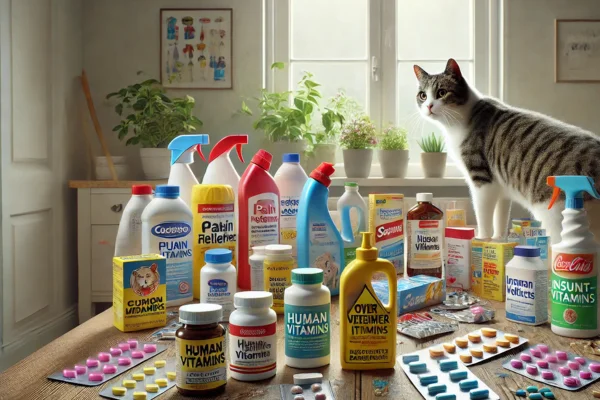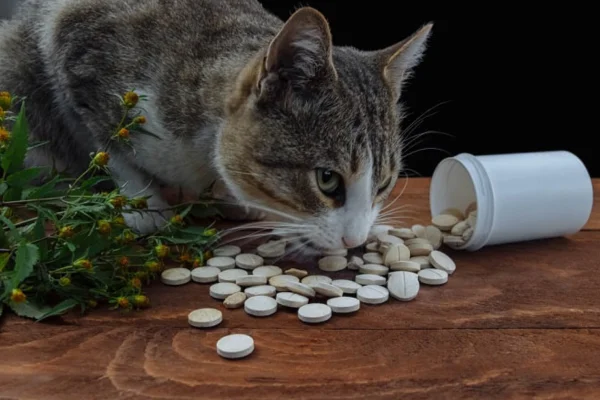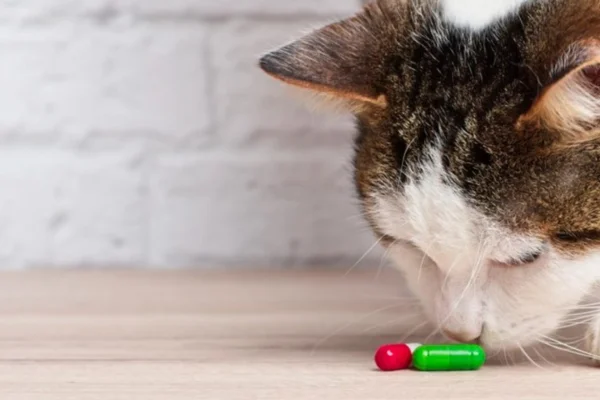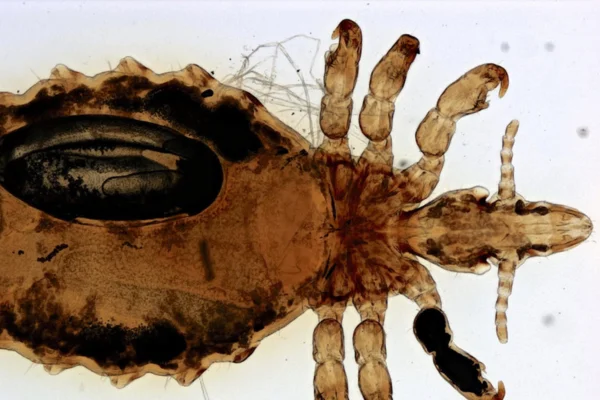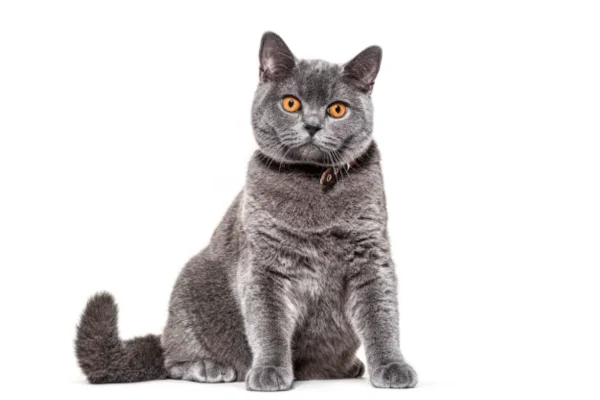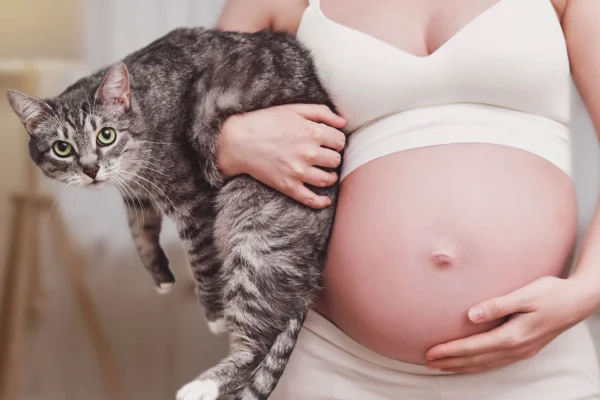Deadly Medicines for Cats: Avoid Accidental Poisoning
Deadly Medicines for Cats - Cats are curious creatures by nature. They love to explore every corner of the house, investigating with their sense of smell and their paws. This curiosity can put them in dangerous situations, especially when it comes to medicines and common everyday products.
Many cat owners are unaware that common medications for humans, which may even be harmless to us, can be lethal for their felines. Knowing which substances to avoid and how to protect your pet is crucial to ensuring their safety and well-being.
Why Are Human Medicines Dangerous for Cats?
Cats have a very different metabolism to humans and other animals, such as dogs. Substances that our bodies can easily metabolize can be extremely toxic to felines.
Contents
They have specific enzymes to detoxify the body, but often the enzymes present in cats are unable to properly process the compounds present in common medicines.
That's why it's essential to keep an eye on any medication you use at home, and to keep these products out of the reach of your cats. A small oversight can cause serious poisoning, which can often be fatal if not treated quickly.
Deadly Medicines for Cats (1)
Common Medicines That Are Toxic to Cats
- Paracetamol (Acetaminophen)
Paracetamol, widely used to treat pain and fever in humans, is extremely toxic to cats. Just one tablet can cause serious damage to the animal's liver and bloodstream. Cats cannot metabolize this substance efficiently, which results in cell damage. Signs of poisoning include vomiting, listlessness, difficulty breathing and swelling of the paws and face. - Ibuprofen and Other Non-Steroidal Anti-Inflammatory Drugs (NSAIDs)
Ibuprofen, naproxen and other non-steroidal anti-inflammatory drugs are dangerous for cats. These drugs can cause gastrointestinal ulcers, kidney failure and even death, even in small doses. As cats have a sensitive digestive system, any accidental ingestion of these drugs can be devastating. - Aspirin (Acetylsalicylic Acid)
Although aspirin can be prescribed in very low doses and under veterinary supervision for cats with certain conditions, accidental overdose is dangerous. Cats metabolize aspirin much more slowly than humans, and incorrect dosage can lead to vomiting, fever, breathing problems, convulsions and even death. - Antidepressants (Fluoxetine, Sertraline)
Antidepressants, widely used by humans, can cause toxicity in cats when accidentally ingested. Symptoms of antidepressant poisoning include tremors, convulsions, hyperactivity, vomiting and diarrhea. In severe cases, they can lead to coma and death. - Cardiovascular Drugs (Beta-blockers, Calcium Channel Blockers)
Drugs used to treat hypertension and heart disease in humans can be fatal for cats. They can cause dangerously low blood pressure, irregular heartbeats, lethargy and even cardiac collapse in cats. - Thyroid medication
Medicines used to treat hypothyroidism in humans, such as levothyroxine, are dangerous for cats. Accidental ingestion can lead to a series of serious symptoms, including vomiting, diarrhea, lethargy and changes in heart rhythm. - Human antibiotics
Although some antibiotics are used to treat infections in cats, many human antibiotics are toxic to them. Amoxicillin, for example, if administered without veterinary supervision, can cause adverse reactions such as diarrhea, vomiting and even kidney damage. - Anticonvulsants (Phenobarbital, Phenytoin)
Anticonvulsants, used to treat epilepsy and other conditions in humans, can be extremely harmful to cats. Symptoms of toxicity include extreme drowsiness, disorientation, tremors, and in severe cases, coma.
Other Commonly Used Products Dangerous for Cats
In addition to medicines, many products we use every day can pose a risk to cats. Seemingly harmless substances, such as cleaning products and even decorative plants, can be dangerous.
- Household Cleaning Products
Cleaning products containing bleach, ammonia or phenol are toxic to cats. Ingestion or direct contact with these products can cause gastrointestinal lesions, breathing difficulties and even organ damage. It is important to ensure that all surfaces cleaned with these products are dry before allowing the cat to come into contact. - Insecticides and rodenticides
Insecticides and rodenticides are extremely dangerous for cats. These products contain chemical substances that can be fatal if ingested, even in small quantities. Cats that eat prey contaminated with these poisons can suffer severe poisoning, leading to organ failure. - Toxic plants
Plants such as lilies, azaleas and tulips are extremely toxic to cats. Ingesting these plants can cause vomiting, diarrhea, kidney failure and even death.
What to do in case of poisoning?
If you suspect that your cat has ingested any medication or toxic substance, it is crucial to act quickly. Don't try to induce vomiting without veterinary advice, as this could make the situation worse.
Immediately contact a veterinarian or a veterinary emergency line for advice. The sooner treatment is started, the better your pet's chances of recovery.
Deadly Medicines for Cats (2)
Prevention: How to Keep Your Cat Safe?
The best way to protect your cat from ingesting lethal medication is to ensure that all dangerous products are out of reach. Follow these tips to avoid poisoning:
- Store medicines in safe placesMake sure that all medicines, including veterinary medicines, are stored in cupboards or drawers out of your cat's reach.
- Keep cleaning products stored properlyCleaning products and other chemicals should be stored in closed places, such as cupboards or high shelves.
- Avoid using toxic plants at homeIf you like plants, choose species that are not harmful to cats, or keep toxic plants in inaccessible areas.
- Supervise the use of medicationIf you need to take medication, do so away from your cat and dispose of any tablets or capsules that may fall on the floor immediately.
Conclusion
Understanding the risks that common medicines and products pose to cats is essential to ensuring their health and safety.
Cats are extremely vulnerable to a variety of substances that can be present in any home, and prevention is always the best approach. If you suspect any poisoning, don't hesitate to seek veterinary help immediately.
Your cat's safety depends on your knowledge and care. Therefore, by learning more about the dangers around you, you can offer your feline a safer and more secure environment.
Thank you for visiting us and check out our other work

